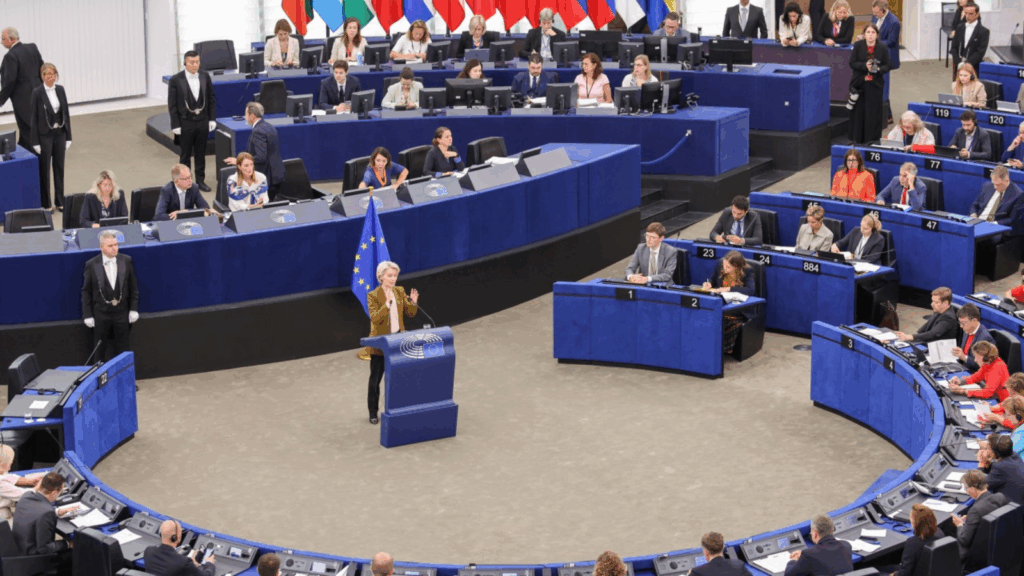New EU Open Call: LIFE-2024-SAP-CLIMA-GOV – Climate Governance and Information
Deadline Date: 17 September 2024 – 17:00:00 CET (Brussels)
Available budget: EUR 4,980,000
Grant size: Indicative range of project budgets EUR 0.7-2 Mln
Objectives:
The call supports the development, implementation, monitoring and enforcement of the Union legislation and policy on climate change, contributing to climate change mitigation and/or adaptation. Improving governance by enhancing the capacities of public and private actors and involving civil society is one of the ways that this is implemented.
Areas of intervention and activities that can be funded:
There are a total of nine possible areas of intervention for this topics. Relevant areas and eligible activities for Eurodiaconia members are:
Area 1: Raising awareness, incentivising behavioural change and supporting the activities of the European Climate Pact.
Projects under this area of intervention should help identify a climate or environmental issue that is not sufficiently understood in terms of its role in mitigating climate change or preparing and adapting to its consequences, help increase awareness and foster public engagement on climate issues to overcome misinformation and stimulate behavioural change in favour of climate action.
The projects can focus on:
- Organising awareness raising and engagement activities on the role of carbon removals and carbon farming to reach climate neutrality in 2050 in the EU and increase public awareness and engage communities on the benefits and risks that carbon capture and storage projects have for the economy, society and environment, including the enabling instruments set up by the EU to facilitate their upscaling;
- Organising awareness raising and engagement activities on the functioning of the EU Emissions Trading System for buildings, road transport and additional sectors, e.g., maritime transport, to build knowledge and understanding among citizens on the new system introduced by the proposal to revise the Directive 2003/87/EC62;
- Organising awareness raising and engagement activities on measures in support of the most vulnerable citizens affected by energy and transport poverty, including preparing for the implementation of the Social Climate Fund and the Emission Trading System for buildings, road transport and additional sectors (EU ETS-2).
The LIFE call 2024 also encourages proposals that contribute to the objectives of the European Climate Pact such as:
- Working with the youth, local communities, professional communities and networks, media etc. to advance climate awareness and build understanding and support for climate mitigation and adaptation action (e.g. dialogues and roundtables, co- creation initiatives, systemic societal transformation labs, awareness campaigns);
- Giving local or regional communities a voice and space to design new climate actions, identifying, boosting and building on existing actions or triggering and catalysing new ones, in particular bottom-up initiatives by citizens and civil society at regional and local level;
- Awareness raising, engagement and capacity building to prevent and fight climate-related dis- and misinformation;
- Supporting societal transformations through bridging environmental, social and economic divides, using innovative ways of working between different stakeholders.
In addition, applicants can explore capacity-building activities and/or financial support to third parties to support bottom-up and local action and connect relevant initiative to others.
Area 2: Green skills & capacity building to implement climate mitigation and adaptation policies.
The increasing complexity of issues around EU governance and legislation on climate action calls for wider use of evidence and public
participation, innovative policy making and better collaboration in various levels among stakeholders. Possible actions include:
- Develop and make use of specific curricula and/or short, quality assured and recognised courses/trainings, such as microcredentials, to boost skills linked to innovative and more evidence informed policy design and implementation;
- Support innovative governance models, notably at local, regional and national levels, for instance by actively involving people, especially from underrepresented groups, civil society, social partners and other stakeholders in the design, implementation and monitoring of pilot projects and policies promoting behavioural change to reduce emissions and improve resource and energy efficiency;
- In relation to Article 10 of the European Climate Law, develop sector-specific climate dialogues and partnerships among key stakeholders to draw up indicative voluntary sectoral roadmaps to assist their transition towards achieving the Union’s climate-neutrality objective by 2050, planning the necessary investments and strengthening sectoral engagement in the pursuit of climate-neutral solutions.
Area 4: Support to the development, update and implementation of national, regional or local climate and energy strategies and plans
In order to support the implementation and review of the climate and energy strategies and plans of EU and its Member States, potential activities can include:
- Activities to implement the national 2030 climate and energy strategies and plans and long-term strategies developed under the regulation on the Governance of the Energy Union and Climate Action, including with a particular emphasis to promote climate-neutrality by 2050;
- Activities to facilitate the upgrading and implementation of existing national strategies and plans, including with a particular emphasis to promote climate-neutrality by 2050;
- Develop and/or implement solutions to enhance co-operation between stakeholders, such as regional and local authorities, civil society organisations, businesses, think tanks and other actors, to implement and develop ambitious, sound, feasible, effective and cost-efficient policies and measures;
- Support the reporting on progress on adaptation and the development of quantifiable resilience goals.
Area 8: Knowledge-sharing and capacity building on the functioning of the EU ETS
Tracking progress through enhanced monitoring and reporting as well as a robust evaluation of the effects of climate policies is needed to improve implementation and development of climate policies. This includes the knowledge sharing and capacity-building on the functioning of the EU ETS within EU and internationally (including the maritime transport sector and the introduction of the EU ETS for building, road transport and additional sectors (ETS-2), their impacts and interaction with energy and other policy instruments and the related development of easily accessible information and data.
Projects could focus on building broader and stronger international networks of experts and ensure wider dissemination of knowledge on building political support for carbon markets and further technical aspects, such as emissions inventories, projections, monitoring and evaluation of policies and measure.
Area 9: Climate policy monitoring, assessment and ex-post evaluation
Monitoring the development, implementation, and review of climate polities of the EU and its Member States is important in lesson learning and dissemination. Possible projects can explore the synergies with the EU Missions, particularly the
EU Mission on Adaptation to Climate Change and the EU Mission on Climate-Neutral and Smart Cities.
Additional notes on eligible activities:
- Activities that are only aimed at awareness-raising of certain groups are insufficient and should be complemented with complemented with concrete measures that facilitate a change in behaviour or practices.
- Projects which aim to develop tools or studies must include specific and concrete action to implement these tools and studies during the duration of the project.
- Projects must comply with EU policy interests and priorities (such as environment, social, security, industrial and trade policy, etc.).
- Financial support to third parties is allowed in LIFE-2024-SAP-CLIMA-GOV – Climate Governance and Information for grants and prizes under the following conditions:
- The calls must be open, published widely and conform to EU standards concerning transparency, equal treatment, conflict of interest and confidentiality.
- In projects which aim to assist entities outside the project partnership (e.g. non-profit organisations, local authorities or citizens groups) in the implementation or development of local initiatives that will contribute to the project’s objectives.
Who are eligible:
The applicants (beneficiaries and affiliated entities) must:
- Be legal entities (public or private bodies)
- Be established in one of the eligible countries, i.e.:
- EU Member States (including overseas countries and territories (OCTs))
- Non-EU countries: listed EEA countries and countries associated to the LIFE Programme or countries which are in ongoing negotiations for an association agreement and where the agreement enters into force before grant signature (list of participating countries)
- The coordinator must be established in an eligible country
How to apply:
- Beneficiaries and affiliated entities must register in the Participant Register — before submitting the proposal — and will have to be validated by the Central Validation Service (REA Validation).
- Proposals must be submitted electronically via the Funding & Tenders Portal Electronic Submission System (accessible via the Topic page in the Search Funding & Tenders section. Paper submissions are NOT possible
For more information, please access the call document here.



